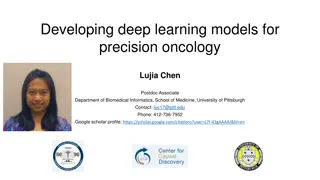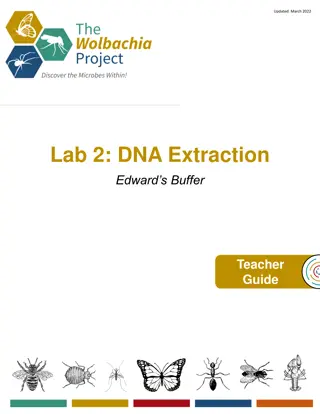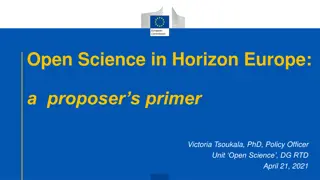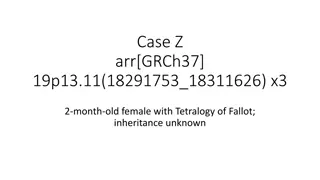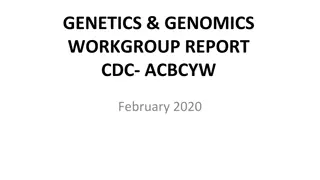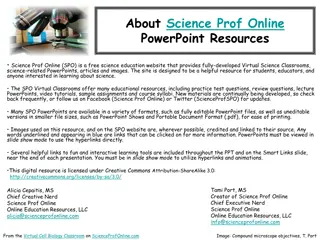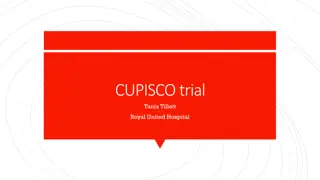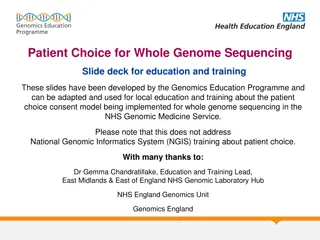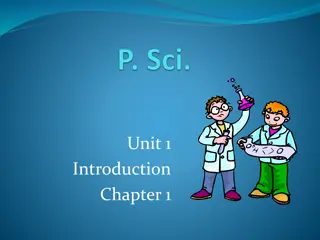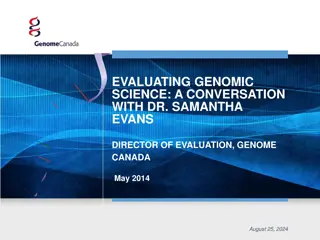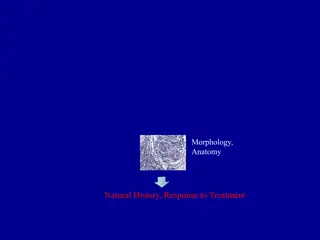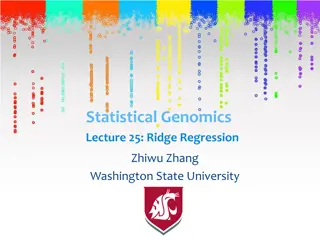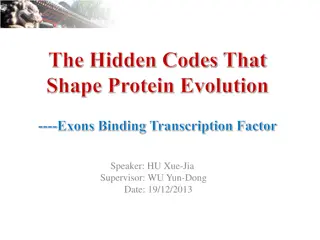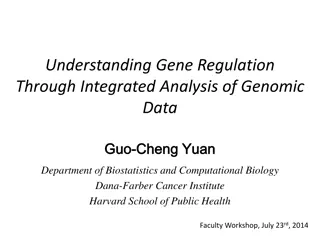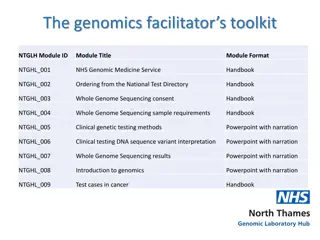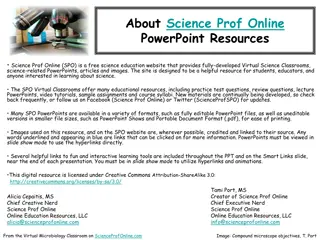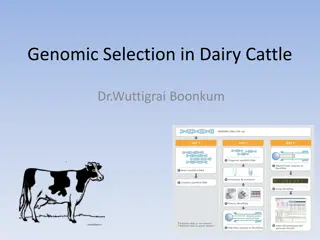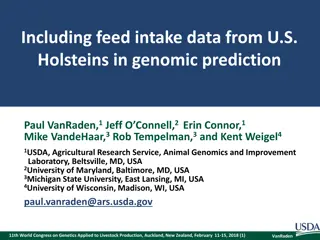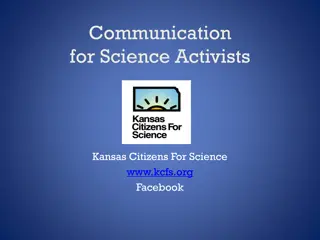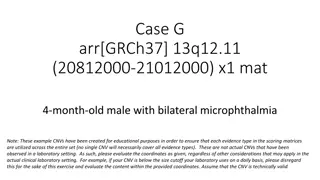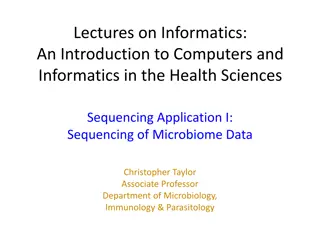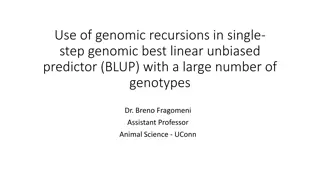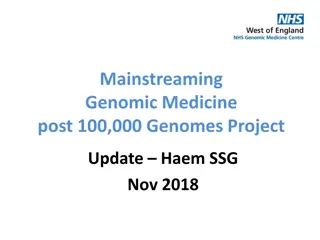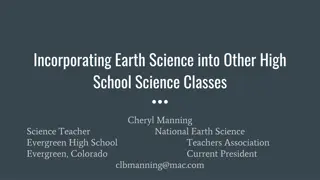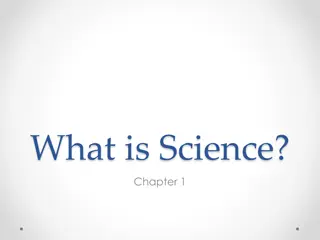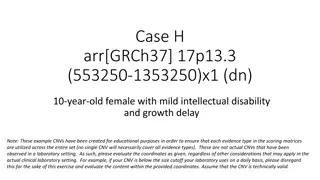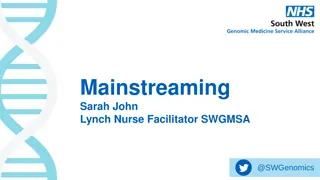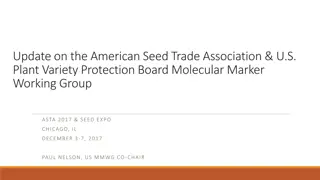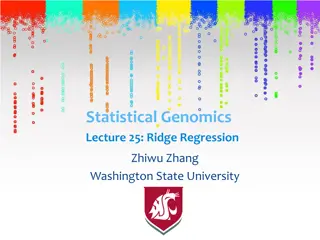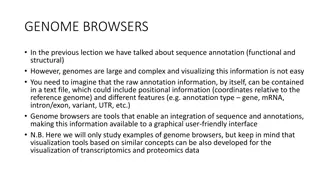Government Management System Based on Science and Innovation in Cuba
The Cuban Revolution under Fidel Castro emphasized the role of knowledge, science, and technology in national development. With the Constitution of the Republic in 2019, science, technology, and innovation (STI) are recognized as crucial for prosperity, sovereignty, and independence. Amid the COVID-
1 views • 18 slides
Genomic Inference of Human Population Size Changes Over Time
Explore the genomic inference of a severe human bottleneck during the Early to Middle Pleistocene transition, tracing the evolution of hominins over the last 4 million years, and studying essential events in the emergence of humans in the last one million years. Discover well-known human population
4 views • 33 slides
Latest Developments in Genomic Medicine and NHS Genomic Strategy
The genomic medicine field is advancing rapidly, with a focus on enhancing healthcare services through genomic testing for prediction, prevention, diagnosis, and precision medicine. The NHS is actively integrating genomics into its healthcare system, aiming for equitable access to genomic testing. I
1 views • 16 slides
B.Sc (Arts) Courses and Colleges List for Science Students
If you\u2019re a 12th-grade student exploring undergraduate options in the B.sc science stream, consider the following list of recommended courses and colleges\nThe list of courses and colleges for the Science stream:\n1. B.sc (CS)\nThe BSc Computer Science, or BSc CS, is a 3-year undergraduate prog
9 views • 5 slides
Precision Oncology Research using Deep Learning Models
Lujia Chen, a Postdoc Associate at the University of Pittsburgh, focuses on developing deep learning models for precision oncology. By utilizing machine learning, especially deep learning models, Chen aims to identify cancer signaling pathways, predict drug sensitivities, and personalize cancer trea
1 views • 5 slides
Lab 2: DNA Extraction Techniques for Arthropods and Wolbachia
In this lab activity, students will learn how to isolate genomic DNA from arthropods and Wolbachia bacteria. The goal is to transition from fieldwork to molecular biology, utilizing DNA as a diagnostic tool. The activity involves extracting total genomic DNA from identified species and includes pre-
0 views • 11 slides
Interdisciplinary Approach in Political Science and Its Relation with History
The need for an interdisciplinary approach in political science emerged in the 20th century to study political issues from various social science perspectives. This approach emphasizes the interrelation between political science and other disciplines like history. History provides the foundation for
0 views • 23 slides
Understanding Open Science Practices in Horizon Europe
Open Science in Horizon Europe emphasizes open, collaborative research processes to enhance excellence and impact. Important documents and resources provide guidance on meeting open science obligations, while proposals are evaluated based on open science practices. Evaluating proposals in Horizon Eu
1 views • 12 slides
Genomic Evaluation of a 2-Month-Old Female with Tetralogy of Fallot
This case involves a 2-month-old female with Tetralogy of Fallot, carrying a genetic variation in the 19p13.11 region. The evaluation process includes assessing genes, known dosage sensitivity, gene count, and detailed analysis of the duplication found in the DGV Gold Standard Dataset. The frequency
0 views • 17 slides
Computer Science Department Information and Courses Offered
The Computer Science Department provides information on courses offered for GCSE or BTEC qualifications, specifically focusing on the AQA GCSE in Computer Science. The course equips students with valuable thinking and programming skills essential in the modern workplace, covering key concepts and pr
3 views • 7 slides
Understanding Challenges and Gaps in Genetic and Genomic Testing for Breast Cancer Risk
The report highlights current challenges and identified gaps in genetic and genomic testing for breast cancer risk assessment. The workgroup aims to catalog existing materials, address terminology confusion, and improve public and clinician education. Challenges include complex terminology, uncertai
0 views • 21 slides
Free Science Education Resources on Science Prof Online (SPO)
Science Prof Online (SPO) is a valuable free science education website offering fully-developed Virtual Science Classrooms, science-related PowerPoints, articles, and images. It serves as a comprehensive resource for students, educators, and anyone interested in science. Explore practice test questi
0 views • 17 slides
Molecularly-Guided Therapy vs Platinum Chemotherapy in CUP Patients
This trial aims to compare the efficacy and safety of molecularly-guided therapy or cancer immunotherapy based on genomic profiling with platinum-based chemotherapy in patients with cancer of unknown primary site. The study design includes multiple treatment regimens guided by genomic profiles, with
4 views • 9 slides
Free Science Education Resources at Science Prof Online (SPO)
Science Prof Online (SPO) is a comprehensive science education website offering Virtual Science Classrooms, science-related PowerPoints, articles, and images for students, educators, and anyone interested in science. The site provides various educational resources, including practice test questions,
0 views • 16 slides
Patient Choice for Whole Genome Sequencing in NHS: Education & Training Slide Deck
Developed by Genomics Education Programme, these slides focus on the patient choice consent model for whole genome sequencing in NHS Genomic Medicine Service. The model aims to ensure informed choices for genomic testing, including participation in the National Genomic Research Library. It covers se
0 views • 34 slides
Understanding Science: Introduction to the World of Knowledge
Discover the essence of science as a system of knowledge and methods for exploration. Learn about the scientific method, the relationship between science and technology, and key branches of science like chemistry and physics. Explore how science is conducted through observations and inferences, and
0 views • 54 slides
Evaluating Genomic Science: Insight into Genome Canada's Mission and Impact
This conversation with Dr. Samantha Evans, Director of Evaluation at Genome Canada, delves into the importance of program evaluation in genomic science. Genome Canada aims to connect ideas, invest in science and technology, and maximize impacts across sectors. The evaluation process involves collect
0 views • 36 slides
Go Science Crazy: Explore the Wonders of Science with Our Science Kits for Sale
Discover the excitement of science with Go Science Crazy's premium Science Kits for Sale. Perfect for classrooms, homeschoolers, and budding scientists, our kits are packed with everything you need to explore chemistry, biology, physics, and more. Ea
0 views • 3 slides
Precision Oncology and Genomic Changes in Cancer Treatment
Explore the intricate details of cancer treatment through precision oncology, focusing on cell of origin, genomic changes, tumor microenvironment, host factors, and response to various treatments such as chemotherapy, biological therapy, and immune therapy. The natural history and histology-guided c
0 views • 9 slides
Understanding Ridge Regression in Genomic Selection
Explore the concept of ridge regression in genomic selection, involving the development of genomic selection methods, pioneers in implementation, fixed and random effects, and the over-fitting phenomenon. Learn how ridge regression addresses issues of over-fitting by introducing regularization param
0 views • 26 slides
Decoding the Hidden Regulatory Codes Shaping Protein Evolution
The study explores the intricate relationship between genetic and regulatory codes that shape protein evolution. Discusses how duons, genomic footprints, and transcription factors densely populate and constrain protein-coding exons. Highlights how regulatory elements influence codon choice independe
0 views • 21 slides
Insights into Gene Regulation through Genomic Data Analysis
Explore the intricate world of gene regulation and genomic data analysis through a comprehensive study presented at a faculty workshop in 2014. Delve into the evolution and classification of biology, the impact of genome sequencing on digitizing biology, and the potential of genetic information vari
0 views • 18 slides
Genomics Facilitator's Toolkit Summary & Sample Requirements
This toolkit provides essential resources for healthcare professionals involved in genomics services, covering topics such as genomic medicine, whole genome sequencing, clinical genetic testing methods, interpretation of DNA variants, and more. It also details the specific sample requirements for di
0 views • 24 slides
Free Science Education Website - Science Prof Online PowerPoint Resources
Science Prof Online (SPO) is a free science education website offering fully-developed Virtual Science Classrooms, science-related PowerPoints, articles, and images. This resource is designed to assist students, educators, and anyone interested in learning about science. The site provides a wide ran
0 views • 17 slides
Genomic Selection in Dairy Cattle: Advantages, Disadvantages, and Impact
Genomic selection in dairy cattle focuses on specialized breeds like Holstein, Jersey, Brown Swiss, and Ayrshire. It brings reliable breeding values at a young age, higher success rates in obtaining top bulls, and lower costs for test proofs, leading to a shorter generation interval. While it offers
0 views • 12 slides
Genomic Prediction of Feed Intake in U.S. Holsteins
This study discusses the inclusion of feed intake data from U.S. Holsteins in genomic prediction, focusing on residual feed intake (RFI) as a new trait. The research involves data from research herds and genotypes of cows, with genetic evaluation models and genomic evaluation for predicting feed int
0 views • 17 slides
Genomic Imputation Pipeline Overview
This document outlines a genomic imputation pipeline for multiple GWAS studies using reference panels such as 1000 Genomes Phase I data. It covers steps like data matching, phasing, and imputation using tools like Beagle and Minimac. The expected output includes imputed dosages and quality measures.
0 views • 6 slides
Kansas Citizens For Science: Advocating for Science Education and Public Understanding
Kansas Citizens for Science (KCFS) is a nonprofit educational organization dedicated to promoting a better understanding and appreciation of science. Since its inception, KCFS has been actively involved in advocating for science education, educating the public about the nature and value of science,
0 views • 12 slides
Science Community Engagement and ATST Development Summary
Science community engagement and development of the Advanced Technology Solar Telescope (ATST) are critical for the success of the project. The formation of core groups, hosting ATST science meetings, and involving a wider US user community are key recommendations from reports and discussions. The P
0 views • 13 slides
Evaluation of Genomic Deletion in a 4-Month-Old Male with Bilateral Microphthalmia
Clinical assessment was conducted on a 4-month-old male with bilateral microphthalmia due to a genomic deletion in the 13q12.11 region. The deletion encompasses part of a protein-coding gene and has been associated with various birth defects and developmental delays in previous cases. Detailed evalu
0 views • 13 slides
Introduction to BED Files: An Overview of Browser Extensible Data Format
BED (Browser Extensible Data) files are commonly used for annotating genomic sequences by specifying ranges on chromosomes. They consist of required fields like chromosome name, start and end positions, and optional fields for additional information such as name, score, strand, and color representat
0 views • 11 slides
Genomic Recursions in Genomic BLUP for Animal Breeding
Explore the application of genomic recursions in single-step genomic best linear unbiased predictor (BLUP) for genetic evaluations in animal breeding. Understand the significance of using genomic data to improve genetic selection, increase accuracy, shorten generation intervals, and enhance genetic
0 views • 31 slides
Mainstreaming Genomic Medicine: 100,000 Genomes Project Update
The Mainstreaming Genomic Medicine post provides insights into the background and progress of the 100,000 Genomes Project, including details on genetic vs. genomic testing, the setup of NHS Genomic Medicine Centres, types of cancer included, and samples taken. It covers the project's inception, key
0 views • 19 slides
Enhancing Science Education Through Earth Science Integration
Explore the importance of incorporating Earth Science into high school Biology, Chemistry, and Physics classes, leveraging resources and NGSS standards to create engaging cross-disciplinary learning experiences. Cheryl Manning, NESTA President, shares insights on bridging Earth Science concepts with
0 views • 13 slides
Introduction to Science and its Branches
Science is the organized way of gathering and analyzing evidence about the natural world. It encompasses various branches such as Biology, Earth Science, Chemistry, and Physics, each focusing on different aspects of the world around us. Careers in these fields range from doctors and nurses in Biolog
0 views • 25 slides
Genetic Analysis of 17p13.3 Deletion in a 10-Year-Old Female
This genetic case study involves a 10-year-old female with a de novo 17p13.3 deletion, presenting with mild intellectual disability and growth delay. The deletion overlaps with the Miller-Dieker syndrome critical region, impacting genes associated with lissencephaly and cognitive impairment. Through
0 views • 19 slides
Understanding Mainstreaming in Genomic Testing for Lynch Syndrome
Mainstreaming in healthcare involves shifting genomic testing from Clinical Genetics to various specialties, such as cancer MDTs. This process impacts consent for genetic testing and result communication. NDRS data analyzes the time to diagnosis, while training and resources focus on why mainstreami
0 views • 7 slides
Advancements in Molecular Marker Utilization for Plant Breeding
Explore the latest developments in using DNA markers for plant breeding, focusing on applications such as marker-trait association, germplasm characterization, and seed purity. Learn how DNA markers are revolutionizing plant science by enhancing genomic prediction, facilitating varietal distinctness
0 views • 9 slides
Concept Development and Implementation of Ridge Regression in Genomic Selection
This presentation delves into the concept development and implementation of ridge regression in genomic selection, emphasizing the importance of avoiding overfitting by regulating parameters and distinguishing between fixed and random effects. The pioneers of ridge regression and Bayesian methods ar
0 views • 26 slides
Understanding Genome Browsers and their Significance in Genomic Research
Genome browsers are essential tools for visualizing complex genome information, integrating sequence data with annotations in a user-friendly graphical interface. They enable exploration of chromosomal regions, regulatory elements, and comparative genomics across different organisms. Key examples in
0 views • 24 slides




